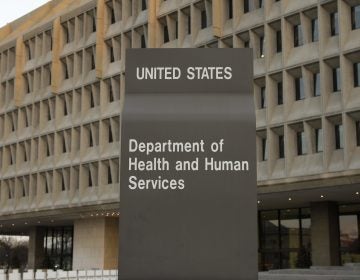Delaware to implement model for addiction treatment
The state is asking recipients to treat more than 900 new individuals across three counties during the first 12 months of launching the model of care in the state.

Addiction Diagnosis. (Picture/Bigstock Photo)
Delaware’s Department of Health will use $2 million in federal funding to expand and improve substance abuse treatment and access to care in the state.
The funding will be rewarded to three treatment providers in the state committed to offering wraparound services outlined in the “Centers of Excellence” model for substance abuse treatment.
The state is asking recipients to treat more than 900 new individuals across three counties during the first 12 months of launching the model of care in the state.
“This is so critical for us in our state as we work to ensure every Delawarean who has and suffers from substance addiction have access to quality treatment of a variety of ranges that match where they are in need,” said Elizabeth Romero, director of the state’s Division of Substance Abuse and Mental Health.
“Whether it’s inpatient, outpatient, sober living facilities, housing or education, they get exactly what they need at the time they need it to support them in a successful recovery.”
The implementation of the model of care is a response to the state’s “opioid epidemic.” In 2016, 308 people died from overdoses in the state, according to the Division of Forensic Science.
Through March 9, DSAMH is seeking requests for proposals from healthcare providers dedicated to implementing the model of care. Applicants must meet several standards, including providing all three federally approved addiction assisted medication.
The model outlines a variety of wraparound services, and round-the-clock support from certified peer specialists who discuss treatment needs and post-discharge services with the patients and hospital staff.
Treatment providers also must track and report patient outcomes, and partner with other providers to learn more about evidence-based practices.
Romero said there’s currently a need to improve the number of treatment centers in the state that are able to provide a variety of medication assisted treatment. She also said the state wants to ensure individuals struggling with addiction are referred to appropriate treatment at the right time.
The ultimate goal of implementing the model of care is to encourage increased referrals, and an expansion of treatment that is personalized to the patient’s needs.
“We’re really looking at the model as a way to help us think about the entire substance abuse system of care in our state and ensuring people are getting the right treatment at the right time, matching to where they are in their recovery process. And the peer coaches are meant to really help connect them and walk them and be an advocate for them as they’re navigating through this process,” Romero said.
“We know in Delaware many of the folks in recovery struggle as they’re being transferred from one system to another. So this will help think about ways to make sure there’s that warm hand off from one referral source to another and that they’re really getting the help they need.”
Those struggling with addiction and their loved ones can call DHSS’ 24/7 Crisis Hotline to be connected to treatment and recovery options. In New Castle County, call 1-800-652-2929. Or in Kent and Sussex counties, call 1-800-345-6785. To search online for treatment and recovery services in Delaware or nearby states, visit www.HelpIsHereDE.com.
WHYY is your source for fact-based, in-depth journalism and information. As a nonprofit organization, we rely on financial support from readers like you. Please give today.





